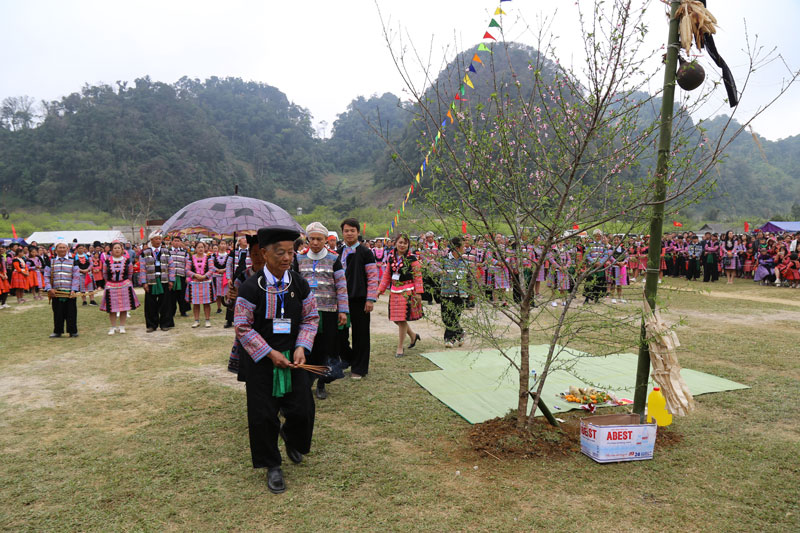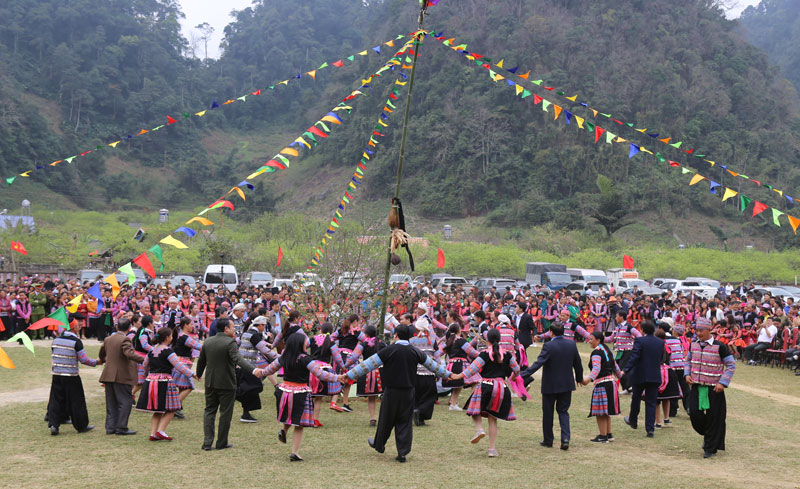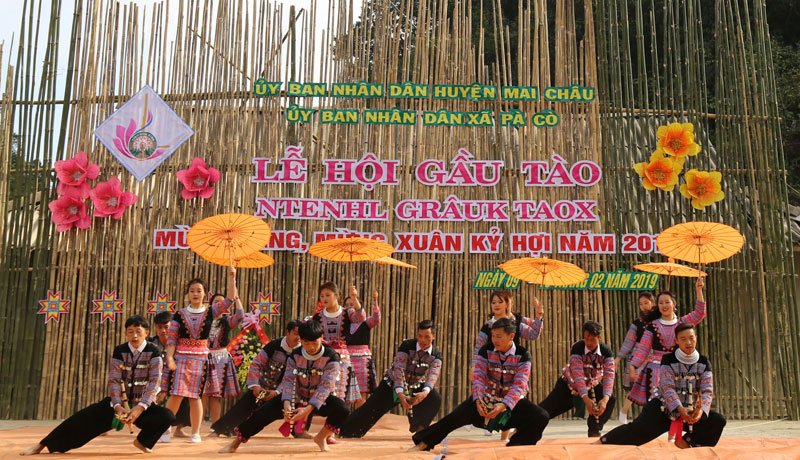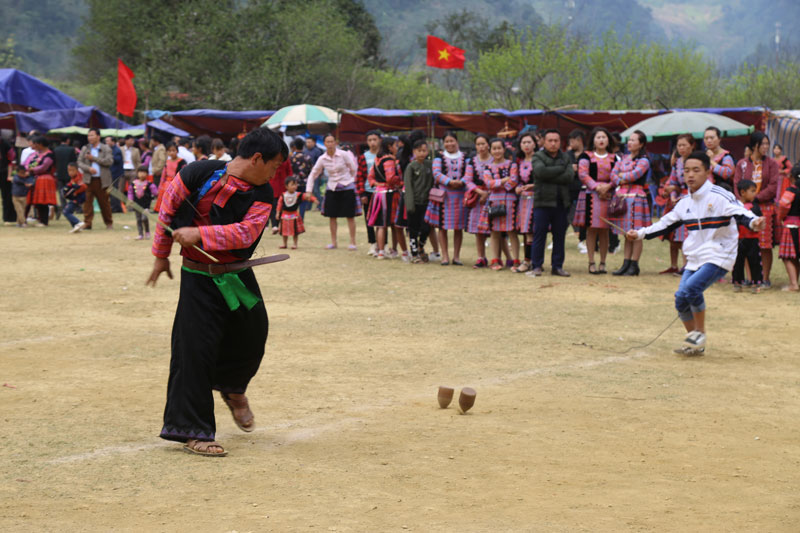
(HBO) – The traditional Gau Tao festival of the Mong ethnic minority people was held by the People’s Committee of Pa Co commune in Mai Chau district on February 10 (the sixth day of the Lunar New Year). It saw the presence of representatives of provincial and local agencies, residents in Hang Kia and Pa Co communes, and visitors.
Gau Tao is a longstanding festival of
the Mong ethnic minority group. It was officially restored in Hang Kia and Pa
Co communes in 2017. The festival began with the erection of a "neu” pole that
represents the connection between the sky and the earth and is meant to pray
for a child and bumper crops. The Mong people erect a neu pole in every spring
and consider this a sacred symbol pushing away bad luck and bringing good luck
in the New Year.
After the "neu” pole erection ritual, young
people held hands in a circle to dance in the sound of khen – a panpipe type of
the Mong people. In this ethnic group’s culture, the sound of khen shows their
traditional spiritual life and belief, and this instrument plays a crucial role
in their traditional rituals and festivals.
The main ritual in the Gau Tao festival is the erection
of the "neu” pole to pray for a child and bumper crops.
In the sound of khen, young Mong people and
visitors hold hands in a circle to dance, which is also the time the festival
is in full swing.
Visitors have a chance to enjoy special singing
and dancing performances at the Gau Tao festival.
The Gau Tao festival also featured a number of
singing and dancing performances, folk games, and booths introducing delicacies
of the Mong people in Pa Co and Hang Kia communes.
The Gau Tao festival features many unique folk games.
The Mong people in Hang Kia and Pa Co communes
used to live isolated and face numerous difficulties in their life. In recent
years, local authorities have carried out many programmes and plans, especially
economic development and poverty reduction plans and the campaign that promotes
people’s unity in building new-style rural areas, thus strongly improving
residents’ material and spiritual life. Locals have no longer practiced
shifting cultivation but settled down to form villages and change their farming
structure such as by boosting the cultivation of "shan tuyet” tea, peach, plum
and passion fruit trees.
The restoration of the Gau Tao festival has
created a chance to tap into local potential and advantages and introduce the Mong
people’s cultural identities to domestic and foreign visitors, thereby helping
to boost socio-economic development in Hang Kia and Pa Co communes./.
In the last historic days of April, blending with the joyful atmosphere of the whole country, on the streets of Hoa Binh City, flags, banners and slogans are brilliantly decorated to celebrate the 50th Anniversary of Southern Liberation and National Reunification. Here are the records from Hoa Binh newspaper’s reporters:
Nestled halfway up the mountains in Cao Son commune, Da Bac district, Sung village appears like a picture preserved intact through generations. With a history of over 300 years, the village is home to nearly 100 households of Dao Tien ethnic group – the people who still maintain their distinctive characteristics in housing architecture, clothing, customs and traditional crafts. The village is drawing increasing interest and exploration from both domestic and international tourists, as every visit becomes a cultural journey to experience the authenticity, friendliness, and hospitality of this highland region.
This Spring, more than 1,000 phoenix trees in Thang Hamlet, Thach Yen Commune (Cao Phong) have bloomed brilliantly, quickly spreading on social media. The picturesque beauty of the flower garden has attracted the participation of many people to admire and take photos.
This belief is both a guiding principle and a lifelong ambition for Sa Van Cam, a member of the Tay ethnic group in Da Bac district and a passionate advocate for the Tay culture. The native has devoted years to the revival, preservation, and teaching of the ancient Tay script.
Located just 25 km from Hoa Binh city and approximately 100km from Hanoi, with a journey of around 1 hour 45 minutes, Ngoi Hoa ecotourism site (PriorBay Resort) in Suoi Hoa commune, Tan Lac district, is a stunning peninsula retreat, and a standout destination within the Hoa Binh Reservoir tourism area. Officially opening in February this year, the resort captivates visitors with its distinctive vacation products and a range of exciting adventure experiences.
Over 1,500 women paraded in traditional ao dai (long dress) at Hoa Binh Square on March 5 to mark Ao Dai Week 2025 launched by the Vietnam Women's Union. Organised by the provincial Women’s Union in collaboration with the city’s chapter, the annual event features lively folk dance performances and a colorful parade that celebrated the beauty of Vietnam’s traditional dress and its rich cultural heritage.






